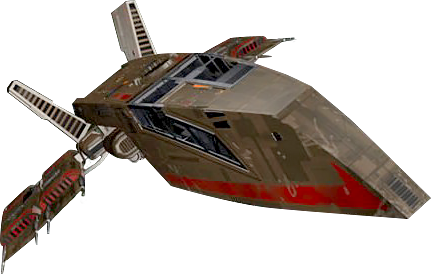VUE Files
[Slightly edited extract from VUE.TXT by Paul Nemesh] [changed the references to "object name" to "id" which is what is used in the OFFSTVUE tool]
This what a sample .VUE looks like:
| vue 1
| transform "id" #1 #2 #3 #4 #5 #6 #7 #8 #9 #10 #11 #12
| transform "id" ......"id" is the identifier (referenced by the .o file, see below). So you can store more than one set of 3D object motions within the one VUE, each with a different identifier.
The values for #1 through #9 are the coefficients of the rotating and scaling matrix that is used by DF to determine how to draw the .3do.
The formulas are:
#1: Scale x [cos(H) x cos(R)]
#2: Scale x [-sin(H) x cos(P) + cos(H) x sin(R) x sin(P)]
#3: Scale x [-sin(H) x sin(P) - cos(H) x sin(R) x cos(P)]
#4: Scale x [sin(H) x cos(R)]
#5: Scale x [cos(H) x cos(P) + sin(H) x sin(R) x sin(P)]
#6: Scale x [cos(H) x sin(P) - sin(H) x sin(R) x cos(P)]
#7: Scale x [sin(R)]
#8: Scale x [-cos(R) x sin(P)]
#9: Scale x [cos(R) x cos(P)]The values for #10 through #12 are:
#10: X coordinate
#11: Z coordinate
#12: -Y coordinateThe .o file should have the following logic associated with the .3do:
SEQ
KEY: TRUE /* This always needs to be present. */
VUE: TIEDEF.VUE "ID" /* This is the filename of the .VUE,
with the object name in quotes. */
VUE_APPEND: TIEDEF2.VUE "ID" /* Same as the previous line, except
this will be run directly after
the first .VUE is finished. */
PAUSE: TRUE /* If this line is used, the .VUE
will run exactly once (like
Kyle's ship taking off). If this
line is omitted, the .VUE will
continuously repeat itself. */
SEQEND[End of extract]
Apparently, the very best way to generate VUE files is to use 3D Studio, as .VUE is a standard 3DS file format, used to describe objects motion.
By the way, 3DS .ASC is the base format for the 3DOs, after which the LEC team converted them.
